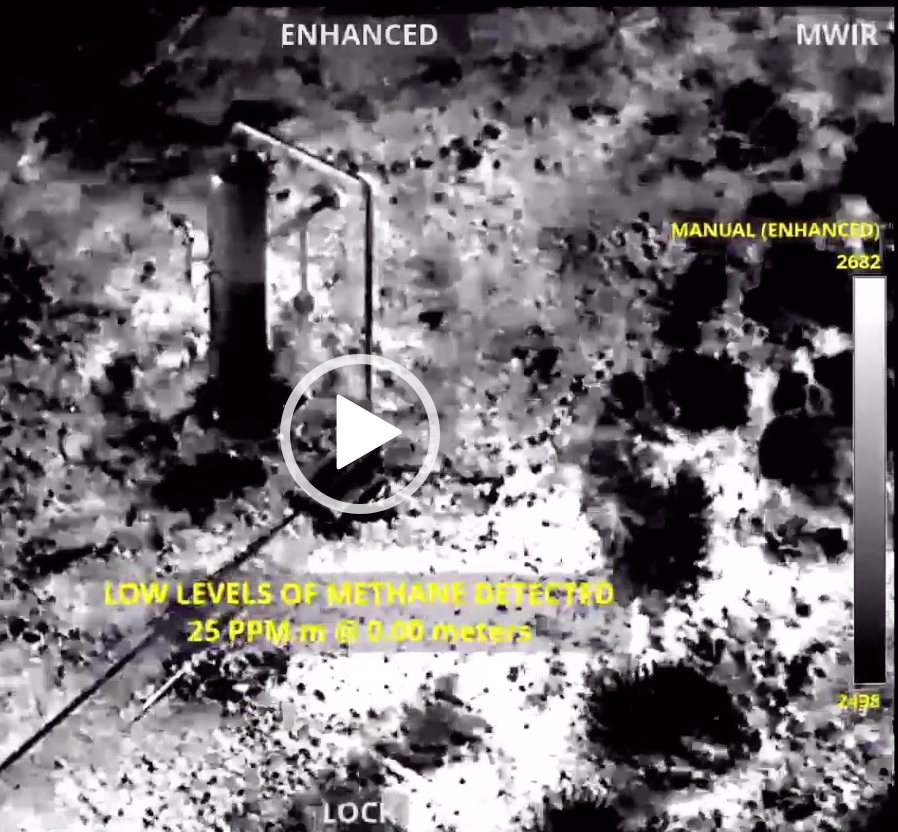On top of the recent OOOOa regulations, the Colorado State Senate has pushed through another bill to further impact the oil and gas industries. This change happened rapidly, in less than a month. With this newest bill, the Colorado Oil and Gas Conservation Commission (COGCC), a past supporter of the oil and gas industry, now further regulates the entire industry. It gives the local government a greater say in where facilities are located. In order to keep up, many industry owners are turning to the use of drones to help them stay ahead of Bill 181.
The Future Impact of Senate Bill 181
 Already, thanks to other bills like OOOOa, gas and oil industries must meet or exceed regulations when doing more frequent inspections of their equipment. Twice yearly, all wellheads, lines, and metering valves have to be inspected. At compressor stations, quarterly surveys are encouraged. Industry owners must report yearly on the ERT and the CEDRI. The newest, SB181, further complicated an already touchy situation for industry owners.
Already, thanks to other bills like OOOOa, gas and oil industries must meet or exceed regulations when doing more frequent inspections of their equipment. Twice yearly, all wellheads, lines, and metering valves have to be inspected. At compressor stations, quarterly surveys are encouraged. Industry owners must report yearly on the ERT and the CEDRI. The newest, SB181, further complicated an already touchy situation for industry owners.
If you look at Weld County, where there are approximately 13,000 active wells, you will find the most impact. The concern is that new permits may remain on a shelf waiting for approval, which could be devastating to the economy in Weld County and beyond. Although slightly smaller, Garfield County with around 11,000 active wells may also take an economic hit. Most of this comes because Section 11 states that either approval must come from the local government or that the local government does not regulate sites in that area.
This stipulation could halt progress. Recent estimates indicate that there are approximately 10,215 applications for new wells near the north, metro Denver area. They are already backlogged by the COGCC, the group formerly most involved with where wells could be developed. The primary concern is that it will make it harder for new well applications to be approved.
The 181 Bill gives control of the industry over to the government. It ensures that zoning for oil and gas industries is something that will be in effect. This contradicts regulations that were set in 1990, which focused more on resource conservation than where a rig could be established.
What Does SB181 Mean?
In short, the COGCC will lose some of its control and as stated in Section 3, more air quality control inspections will become mandatory. Inspections will need to include more gas leak detection and pipeline inspections. There will also be more checks for spills and emissions on all active wells. No longer will public health and safety be combined with oil and gas interests. SB181 focuses solely on public health interests and completely changes the way that drilling is regulated.
Another big change is that before members of a team had to be industry experts with one person experienced in wildlife protection. Section 8, states that an industry expert and a wildlife expert must be on site, as well as an environmental expert, a soil conservation expert, a reclamation expert, either an active agricultural producer or royalty owner, and a member with substantial public health experience.
How Will Industries Overcome the Challenges?
Colorado is one of the top oil-producing states in North America. A massive overhaul of the regulations in the oil and gas industry can have a potentially devastating effect according to many industry owners. The best thing that industry owners can do to protect themselves from further issues is to comply with mandatory inspections to prove that their wells are running clean. One of the easiest ways to do it is to bring drones in to help ensure that you are running a good operation.
The drones at Mile High Drones are fully equipped to keep oil and gas industry inspections accurate, but they can also help in other situations. Drones can be used to help you get permits and speed up the application process by providing aerial data, which can support claims. Our oil and gas services can be used to conduct safe semi-annual leak detection inspections, and they can be used to conduct inspections of all transmission lines or pipelines.
If you would like to know more about how our drones can help you stay ahead of OOOOa regulations or Colorado Senate Bill 181, we are always here to answer questions. Simply contact us for information or pricing.


